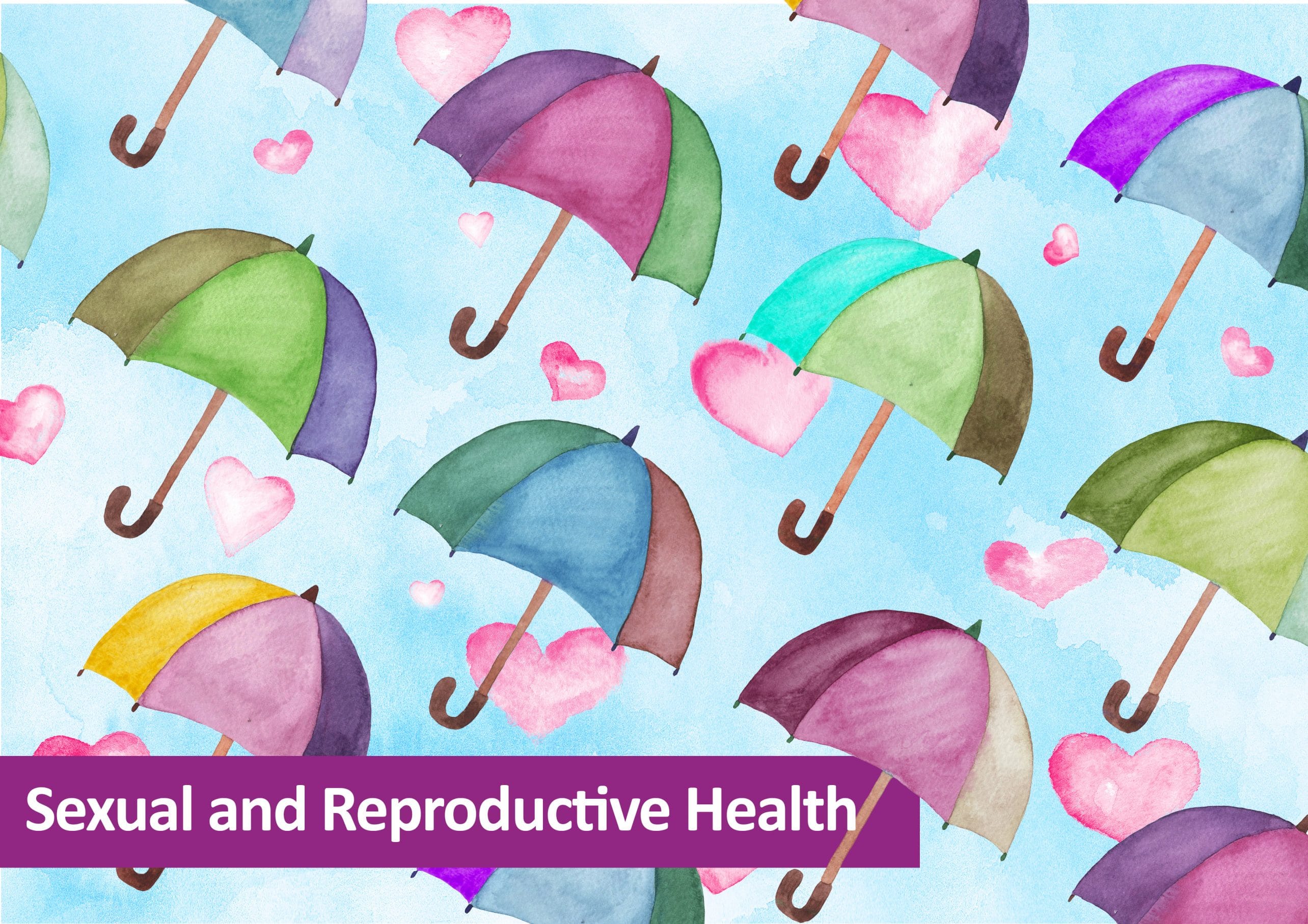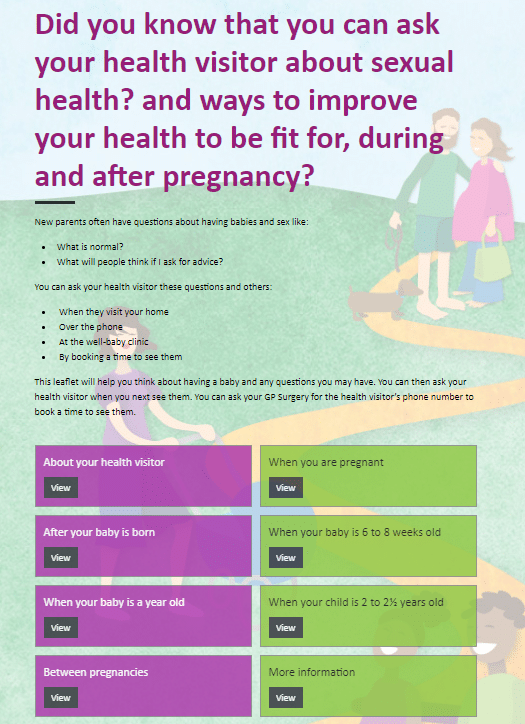12th October 2022
In support of Sexual Health Week (10-16 October, #SHW22), we are delighted to share a Voices Blog by Vicky Gilroy, Head of Projects and Evaluation at iHV, on the suite of resources to support health visitors’ practice in sexual and reproductive health.
“Everyone should be able to access sexual health and wellbeing services in ways that best suit them. The reality is that too many people face barriers when it comes to finding evidence-based, inclusive and non-judgmental support” #SHW22
You may not be aware that the iHV has been developing resources over the last two years to support your practice in sexual and reproductive health – to find out more, read on!
As health visitors, we are ideally placed to support this important agenda through our universal reach to all families. In 2020 and 2021, the iHV was supported by the PHE /OHID Reproductive Health, Sexual Health and HIV Innovation Fund to deliver two projects which focused on sexual and reproductive health, and consider how we could support health visitors to offer evidence-based, inclusive, and accessible support to families.
The projects used collaborative approaches with partners to understand the training needs of health visitors and gather insights from parents/ carers on how they would like to be supported. The need for training was clear, with over 98% of surveyed health visitors reporting that they wanted more training on sexual and reproductive health. Parents/ carers also told us that they weren’t all aware that health visitors could offer them support on sexual and reproductive health, and that the advice offered was inconsistent.
Building on the projects’ scoping, we were able to co-produce a range of resources to support your practice. If you haven’t looked at these already, please do take the time to take a look and learn. The resources can all be accessed here (open access) and provide a really comprehensive guide to support you, support the families you are working with.
Resources include:
- An e-learning package for health visitors considering our role in supporting all aspects of sexual and reproductive health. The feedback on the e-learning has been extremely positive in raising awareness of sexual and reproductive health and the important role of the health visitor
- A webinar focusing on postnatal contraception and introducing a Good Practice Points resource to support your practice
- An A-Z of quality-assured resources to support practice
- A summary of the key policy and literature
- Filmed resources
- Infographics on preconception nutrition
- A parent leaflet with advice on the role of the health visitor in sexual and reproductive health for you to share with parents, with stickers for the Personal Child Health Record and a QR code to share.
In 2021/2022, we went on to further scope the role of the health visitor in postnatal contraception. Health visitors are key professionals in offering postnatal contraceptive advice during the interpregnancy period and to support preconception care as part of a pathway of care. Currently, we know that one-third of pregnancies are unplanned, or parents are ambivalent about the pregnancy. Since 2020, the number of interpregnancy abortions has increased which requires effective action to reduce this trend.
From this work, we developed an awareness session for health visitors on postnatal contraception which we piloted in the North East. The feedback on the training has been really positive, you can watch both a parent’s and a health visitor’s reflection here, under the filmed resources section.
Being involved in both of these projects has reinforced the need for all of us to embrace our role in supporting all families to access timely and high-quality information and advice on sexual and reproductive health, including postnatal contraception. Together, we can play our part in breaking down barriers and reducing inequalities in care.
Vicky Gilroy, Head of Projects and Evaluation at iHV








